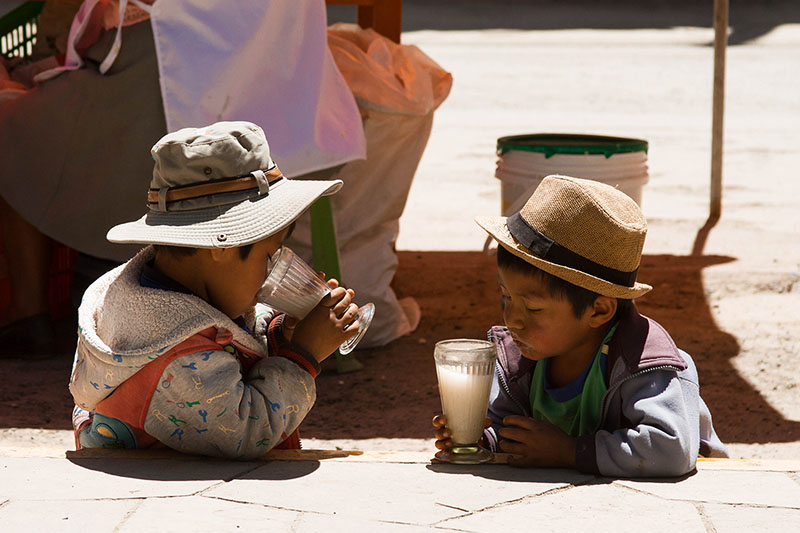

To thrive is to flourish, it is to bloom. For a child it means that they are able to meet their potential, to be happy, healthy, joyful, curious and strong. While the picture of a child thriving may be different across the world, depending on conditions and cultures, what is common in children who thrive is that overall sense of well-being which comes from good health, nutrition, safety and security, responsive caregiving and opportunities to learn. These are the elements of nurturing care.
That every child grows up thriving is the goal of early childhood development. It takes strong families, supported by strong communities and a set of policies that understand this principle. It takes an acknowledgement that the domains of development are integrated – thus health, learning and behaviour are interrelated. And it takes continuity of quality services and family supports, starting in the earliest years, which together provide the foundation for a lifetime of development.
Upon the publication of Early Childhood Matters 2019, and on the 30th anniversary of the Convention on the Rights of the Child (United Nations, 1989), we recommit ourselves to the goal that all children meet their developmental potential and that children everywhere grow up thriving. To celebrate this goal we present a tapestry of articles that, woven together, provide a glimpse of the advances in early childhood development taking place around the world. As in years past, we offer articles that reflect leadership, scaling and innovation, along with short reviews of some of the emerging trends and reports.
We kick off this issue with the voices of important leaders from the United Nations, a foundation and public officials from around the world. Together these articles demonstrate the growing support for early childhood and raise new themes and trends facing young children and families including, among others, the importance of clean air to children’s health, the increasing focus on early nutrition, and new directions for urban planning. These authors represent the growing list of new champions who are standing up for the importance of the early years to long-term development and well-being.
‘For a child, to thrive means that they are able to meet their potential, to be happy, healthy, joyful, curious and strong.’
The focus on scaling early childhood services includes both regional and country examples emerging across a number of topics. These examples provide insight into the various strategies being used to scale services or raise public awareness and influence behaviour. In addition, core elements central to scaling are highlighted, including the need for inter-sectoral collaboration, increased financing and workforce supports, new measurement tools, and the use of media.
The line between scaling and innovation is not always direct. Many innovations are emerging as they scale and many scaling efforts are innovating as they grow. This becomes evident when reading through the wide-ranging articles in the Innovation section which includes the use of technology to improve services, new strategies to reach whole communities and neighbourhoods, the integration of early childhood services in refugee communities and the potential of behavioural sciences to impact development.

Photo: Vanessa Touzard/Bernard van Leer Foundation
Finally, anyone working in the field of early childhood knows that there are many exciting new initiatives and reports emerging almost every day. It is getting more and more difficult to just keep up. We were able to highlight only a few reports from the many that are emerging. These include topics such as income supports and parenting, inclusive education, transportation, urban design, air pollution and others.
Looking across all of these articles, one can almost feel the vitality of the early childhood development and related fields. Taken together, the topics covered form a quilt of individual and collective efforts to support families, promote health and nutrition, assure safety and security, and enhance early learning. While the quilt is presented in pieces, the various activities are being knitted together in communities and countries around the world to provide a comprehensive set of services from the prenatal period through the early years and beyond.
We want healthy births, engaged and loving fathers as well as mothers, and opportunities for young children to become successful and to fulfil their potential regardless of where they live or the conditions they face. To achieve these goals we need public policies that recognise this continuum and a qualified workforce that is respected and supported. We call upon everyone to pull together, to promote equity and justice, to speak out for children and to move with clear direction towards the common goal of all children thriving, everywhere.
References can be found in the PDF version of the article.
See how we use your personal data by reading our privacy statement.
This information is for research purposes and will not be added to our mailing list or used to send you unsolicited mail unless you opt-in.
See how we use your personal data by reading our privacy statement.